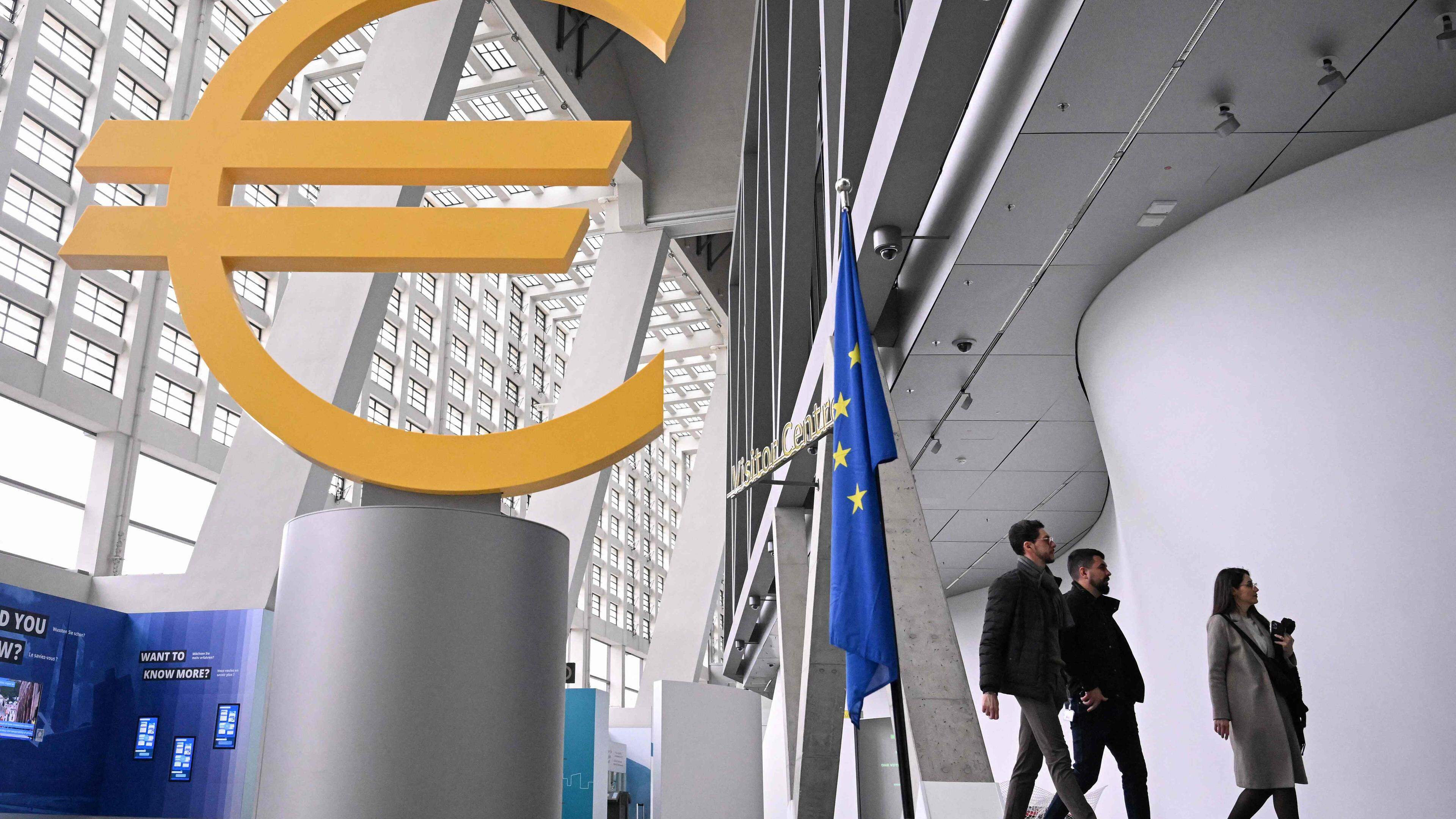ECB supports the economy with a eighth interest rate reduction since June 2024

The economy in the euro area, threatened by high US tariffs, can hope for cheaper loans: for the eighth time since June 2024, the European Central Bank (ECB) lowers the key interest rates in the euro area. This tends to be cheaper for companies to borrow money for investments – this can boost the economy. However, savers have to expect lower daily and fixed deposit interest.
The ECB reduces 0.25 percentage points to 2.0 percent for banks and savers. The central bank has thus halved the deposit rate since the start of the interest reductions last summer.
In addition, the euro currency keeper continues to download the interest rate, to which commercial banks can get fresh money from the central bank: instead of 2.4 percent, 2.15 percent are now due.
For the further course, there was initially no concrete information from the central bank: the situation was still shaped by « exceptionally high uncertainty ».
In the current year, the ECB of the economy in the euro area continues to grow 0.9 percent of growth despite the customs dispute with the USA. For 2026, the central bank is now expecting an increase in gross domestic product (GDP) in the currency area by 1.1 percent. In March, the forecast was somewhat more optimistic with 1.2 percent.
Inflation on the withdrawal
The main goal of the ECB is stable prices and therefore a stable euro. In the medium term, she sees this with an inflation rate of 2.0 percent in the currency area of the 20 countries. In May, the ECB target even below the ECB target, according to the EURostat statistics office, and fell to 1.9 percent.
In 2025, the central bank awaits a spot landing with 2.0 percent inflation. Next year, the inflation rate, according to the latest ECB forecast, should even significantly fall below the target brand with 1.6 percent.
The higher the inflation, the lower the purchasing power of the people because they can then afford for one euro less. But also permanently falling prices want to avoid central banks as far as possible: In this case, companies and consumers could put investments in the hope of even cheaper prices – that would slow down the economy.








